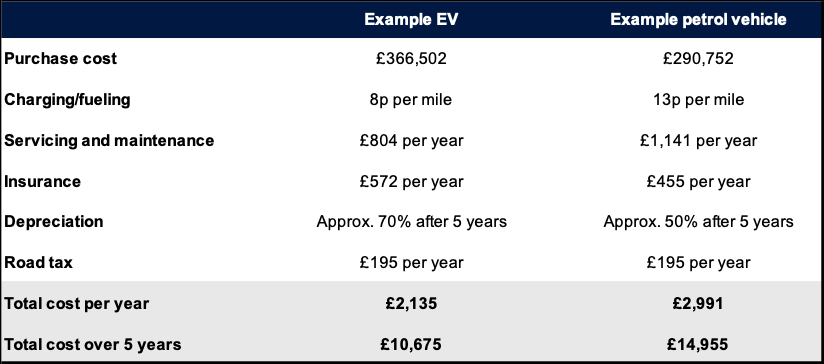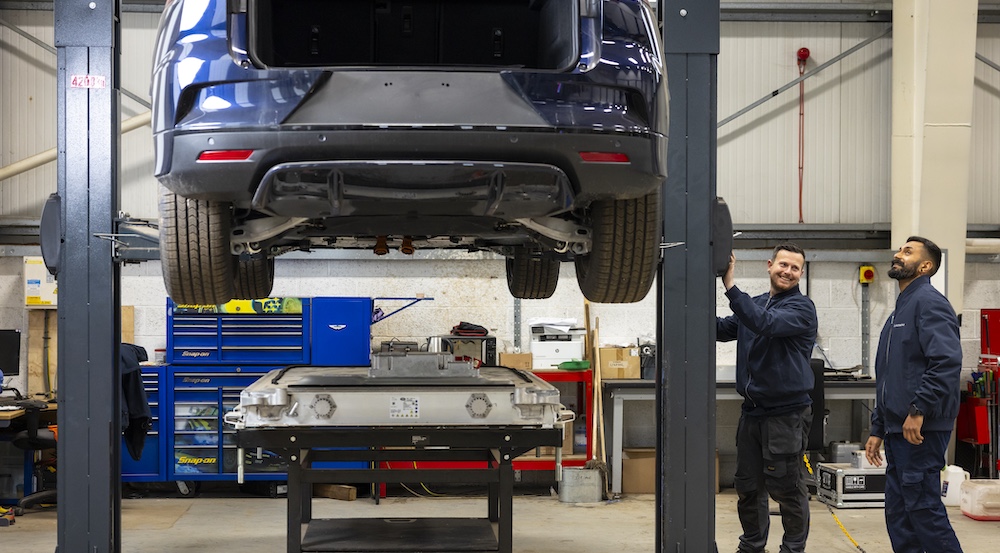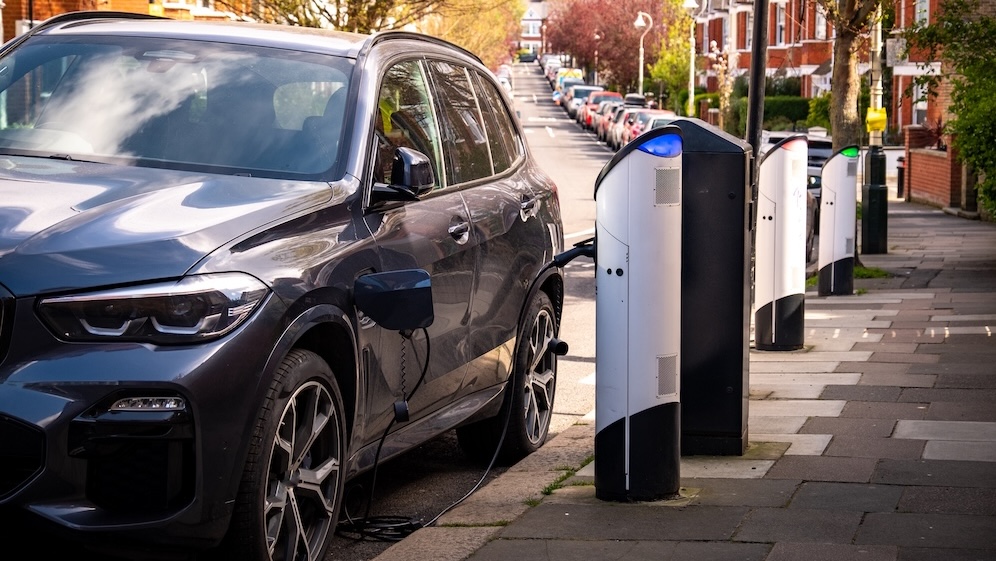Electric vehicle costs: What to expect over 5 years
EVs cost more upfront, but less long-term thanks to charging, servicing and maintenance savings. While insurance and depreciation can add to the cost of EV ownership, EVs are still currently a cost-effective option, with these fees expected to decline.
When you’re considering buying or leasing an electric vehicle (EV), one of the biggest factors to think about is the cost of owning an EV.
While some drivers (40%) are put off by the initial higher upfront cost compared to internal combustion engine (ICE) vehicles, it’s essential to look at the long-term costs of running an EV to understand the true cost of EV ownership.
This guide breaks down electric vehicle costs over time, including charging, servicing, maintenance, insurance, tax and depreciation, to help you decide whether an EV is right for you.
The cost of owning an EV: Purchase or leasing price
New electric vehicle costs
New EVs generally cost more to buy or lease than petrol or diesel equivalents. This is due to the cost of the batteries, specialist materials, and rapidly evolving technology.
However, the gap is closing. In 2020, the average purchase premium of an EV over an equivalent ICE vehicle was 50%. By June 2025, that figure had fallen to 22% as more affordable models entered the market.
Example (2025):
In February 2025, a new VW ID.3 Pro Match 59kWh (EV) cost £36,650, compared to £29,075 for a new VW Golf 1.5 TSI 150 Match (petrol).
For a 36-month lease deal with a £5,000 deposit, the ID.3 Pro Match would cost £343 per month, compared to the Golf 1.5 TSI’s £335 per month.
Used electric vehicle cost
Used EVs are also typically more expensive than used petrol or diesel vehicles, for similar reasons. According to AutoTrader’s Retail Price Index, in August 2025 the average prices were:
- Petrol: £14,641
- Diesel: £13,928
- Electric: £25,025
However, used EVs are becoming more accessible as the market expands. Learn more in our guide: Should I buy a used EV?
The cost of running an EV: Charging vs fuelling
While EVs usually cost more upfront, lower running costs can quickly make up the difference, especially if you can charge your vehicle at home.
Charging your EV at home costs around 8p per mile in kWh, while fuelling a petrol or diesel vehicle costs around 13p to 17p per mile. This can mean that charging a medium-sized electric vehicle costs around half the price of filling up a comparable petrol vehicle. Some energy suppliers also offer EV tariffs, allowing off-peak charging for as little as 3p per mile.
For the average driver travelling 592 miles per month, the cost of running an EV would be roughly £47 per month, compared with up to £100 for petrol or diesel.
EV servicing costs
EVs are typically cheaper to service than ICE vehicles because they have fewer components and don’t require oil or filter changes, which also impacts the frequency of services.
As the expertise and materials become more available, these costs should fall further, reducing the cost of owning an EV even more.
Example: Renault recommends servicing its petrol models every 9,000 miles, compared to every 18,000 miles for its electric Zoe. Every vehicle is different, always check your manufacturer’s recommendations.
According to The Car Expert, the average five-year servicing costs across vehicle type is:
- Petrol/diesel/hybrid vehicles: £5,709
- Electric vehicles: £4,022
That’s a saving of £1,687 over five years, one of the key advantages contributing to lower lifetime electric vehicle costs.
EV maintenance costs
Our research shows over a third (34%) of drivers consider repair and maintenance a concern when it comes to the cost of EV ownership. However, data shows these fears are largely unfounded.
EVs have fewer moving parts and are generally reliable, which helps reduce maintenance costs. Probably the most expensive part of an EV is its battery, which can cost up to £8,000 to replace. However, most EV batteries are designed to last 10-20 years and carry warranties for at least the first eight.
Overall, maintaining an electric vehicle costs 23% less than a petrol or diesel vehicle over a three-year, 60,000-mile period.
EV road tax prices
The cost of taxing an EV depends on the year it was registered:
- 1st March 2001 – 31st March 2017: £20 annually
- 1st April 2017 – 31st March 2025: £195 annually (standard rate)
- On or after 1st April 2025: £10 for the first payment, then £195 annually
Older EVs currently benefit most when it comes to tax, however new models will soon be taxed at standard ICE rates from 2025.
Pay-per-mile tax
From April 2028, a new pay-per-mile tax will apply to electric and hybrid vehicles. Electric cars will be charged 3p per mile, while hybrid vehicles will pay 1.5p per mile.
For example, with an average of 592 mileage a month, EV owners will incur a cost of £213 per year.
EV insurance costs
Despite lower running costs, EV insurance remains slightly higher than ICE equivalents, primarily due to parts and specialised labour.
According to GoCompare, comprehensive insurance for an EV, costs about £572 per year, compared to £455 for an ICE vehicle, citing a £117 difference.
However, as parts become cheaper and more mechanics qualify for EV servicing, insurance premiums are expected to drop, bringing the cost of owning an EV closer to that of ICE vehicles.
EV depreciation over time
Depreciation affects all vehicles, but EVs have historically depreciated faster than ICE vehicles due to initial higher prices, rapidly evolving technology and lower used demand.
However, this is changing. With more EV on the road and growing consumer confidence, EV depreciation and resale values are stabilising. The government’s 2035 Zero Emission Vehicle (ZEV) mandate will also boost long-term demand, helping EVs hold value better over time.
Other electric vehicle costs to consider
Clean air zones (CAZs)
Clean Air Zones (CAZs) across the UK mean that depending on a vehicle’s age and emissions, ICE vehicles can incur additional charges when driving in cities such as Bristol, Sheffield. Resulting in a fee of around £10 per day.
EVs, with zero exhaust emissions, are exempt from these charges, saving you up to £70 per week depending on your travel patterns.
Congestion charges
Until 25th December 2025, EVs qualify for 100% discount on London’s Congestion Charges under the Cleaner Vehicle Discount (CVD). After this date, EVs will pay the standard £15 daily fee, meaning the cost of owning an EV in London may increase slightly after this date.
Conclusion: The cost of EV ownership vs ICE ownership
The total cost of owning an EV depends on the make and model you choose, as well as the vehicle’s age, how and where you charge it, and your driving habits.
The table below gives an indication of potential new electric vehicle costs compared with a new petrol vehicle over one and five years of ownership.

This comparison shows that while new EVs can cost more initially, their running costs, including charging, servicing and maintenance are substantially lower, saving nearly £4,300 over five years.
Note: When the pay-per-mile tax is introduced in April 2028, the average driver will face an additional cost of around £213 per year – or £1,065 over five years. Even with this added expense, an electric vehicle will remain significantly cheaper to run for most drivers.
As technology matures, insurance falls and new models reach price parity, the cost of EV ownership is expected to decline even further.
For more information on buying and owning an electric vehicle, visit the EV Hub.
FAQs: Electric vehicle cost and ownership
Are EVs cheaper to run than petrol cars?
Yes. On average, home charging costs around half as much as refuelling a petrol or diesel.
How much does it cost to service an electric vehicle?
EV servicing costs roughly £4,000 over five years, around £1,700 less than petrol or diesel equivalents, due to having fewer moving parts.
How long do EV batteries last before needing to be replaced?
Most EV batteries last 10-20 years and retain 80-90% capacity after 8-10 years. Many are also covered by an eight-year or 100,000 mile warranty.
Are EVs more expensive to insure?
Yes. Typically, EVs cost around £117 more per year to insure. However, costs are falling as specialist parts and trained mechanics become more available.
Will EV resale values improve?
Yes. Depreciation rates are improving as demand for used EVs grows, meaning resale values are expected to strengthen.







